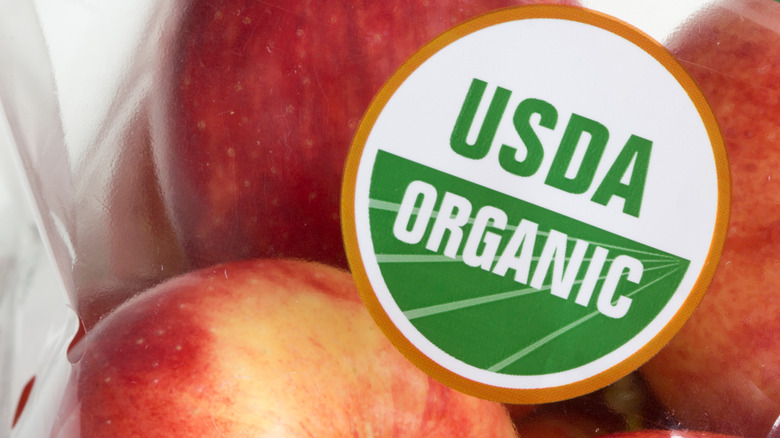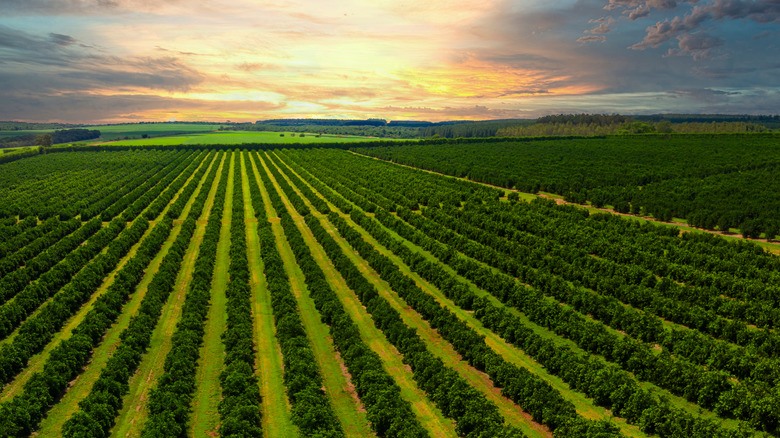Organic Versus Non-GMO: Which One Is Better For You?
We've come to realize the value of all-natural foods. As this consciousness rises, phrases like "organic" and "non-GMO" have become very marketable. But what do these terms mean, and which is actually the better, healthier option for you and your family? Let's find out!
According to the U.S. Department of Agriculture (USDA), in 1990 an act was passed requiring product labels to be reviewed for accuracy, and this act created the guidelines of which foods can be labeled as "organic." These rules prevent toxic materials like additives or pesticides from being used on crops by organic farmers. Eco Watch explains: "Non-organic farmers spray synthetic pesticides on crops to kill weeds and insects — and the toxicity doesn't stop there." Moreover, they point out that when fruits and veggies absorb these chemicals, they can't simply be washed away. Healthline specialists report that long-term exposure to these chemicals is linked to various types of cancers as well as diseases like Parkinson's and Alzheimer's.
To reduce the risk of catching ill from unclean produce, Only Organic recommends purchasing items marked with the USDA Organic seal. They will be the cleanest food choice for your family. They're completely free of fertilizer, pesticide sprays, preservatives, artificial colors, antibiotics, and GMOs. Meat from animals bearing the green USDA Organic label is held to a similar standard (via USDA).
What's the healthier choice?
In contrast, Purdue University's College of Agriculture describes GMOs as organisms (plant or otherwise) that have been genetically altered. This might be done to produce a hardier plant, with genetic characteristics that repel insects or are more resistant to herbicides, so that treatments for bugs or weeds are easier, cheaper, or less necessary (via Purdue University). However, The Non-GMO Verified Project raises the concern that there haven't been epidemiological studies verifying the safety of GMO foods, which means some people may prefer not to consume these items. The Project uses a third-party system to confirm which products are made naturally. But despite undergoing constant tests, non-GMO products are not necessarily organic. Non-GMO items can still be treated with pesticides, growth hormones, and other chemicals (via Purdue).
To feed your family from the prime selection of produce, consider transitioning to all-organic. This will assure you that your food was grown naturally and in the cleanest way possible. To learn more, you may also benefit from researching the brands and the farms your food comes from. The Non-GMO Project's website search portal has a local grocer search for non-GMO verified products. Overall, to avoid contaminants, eat organic!


